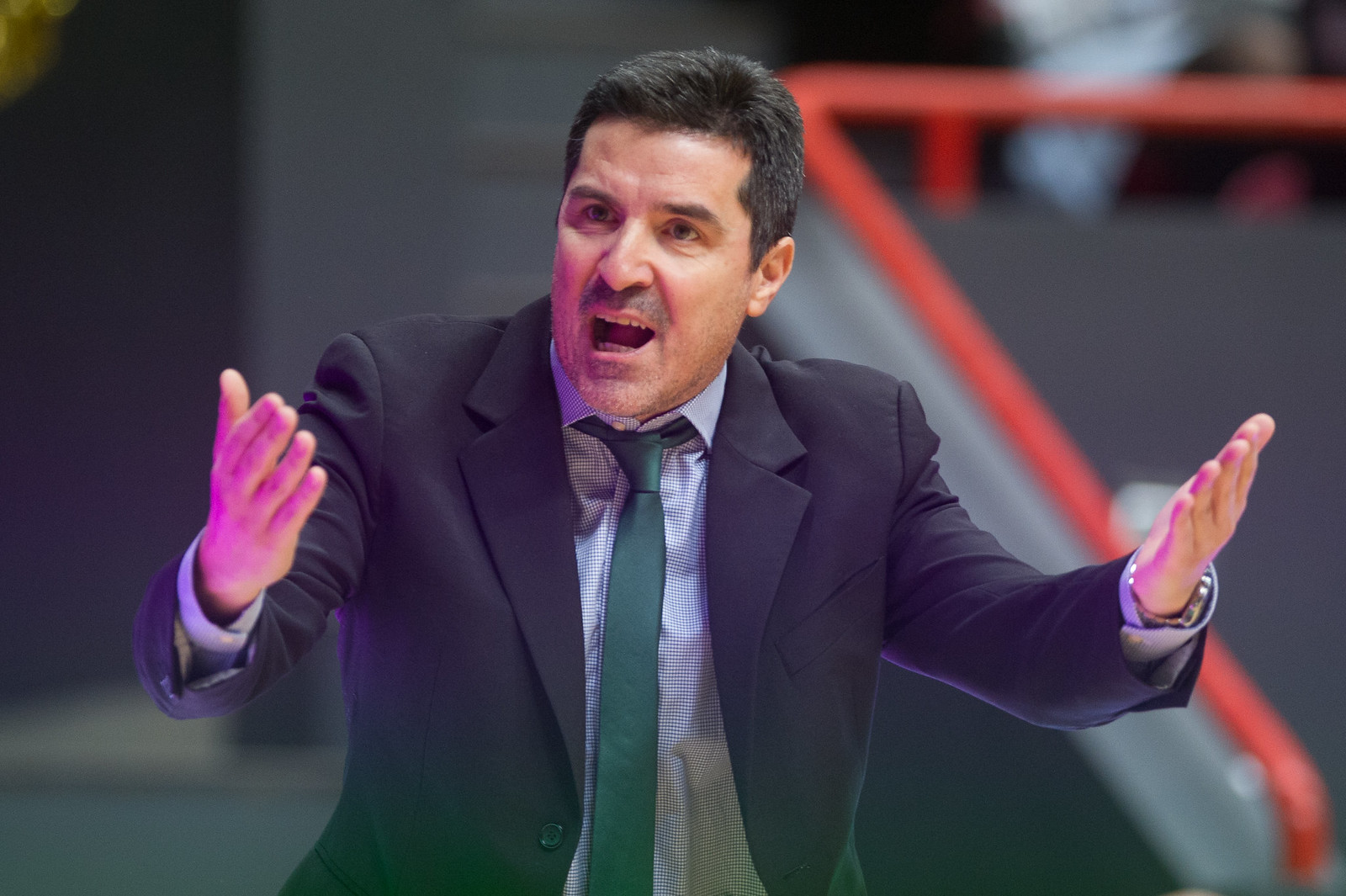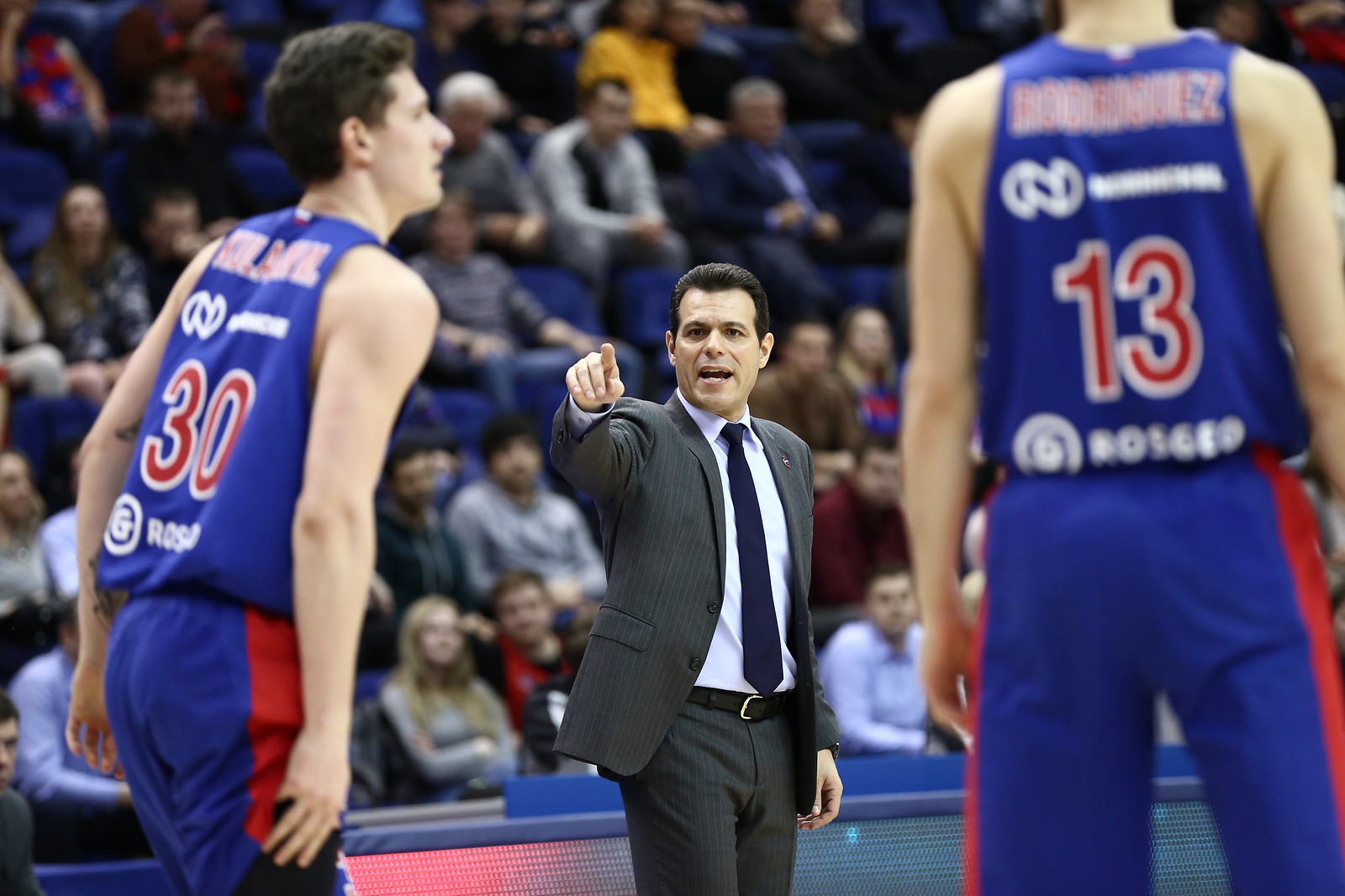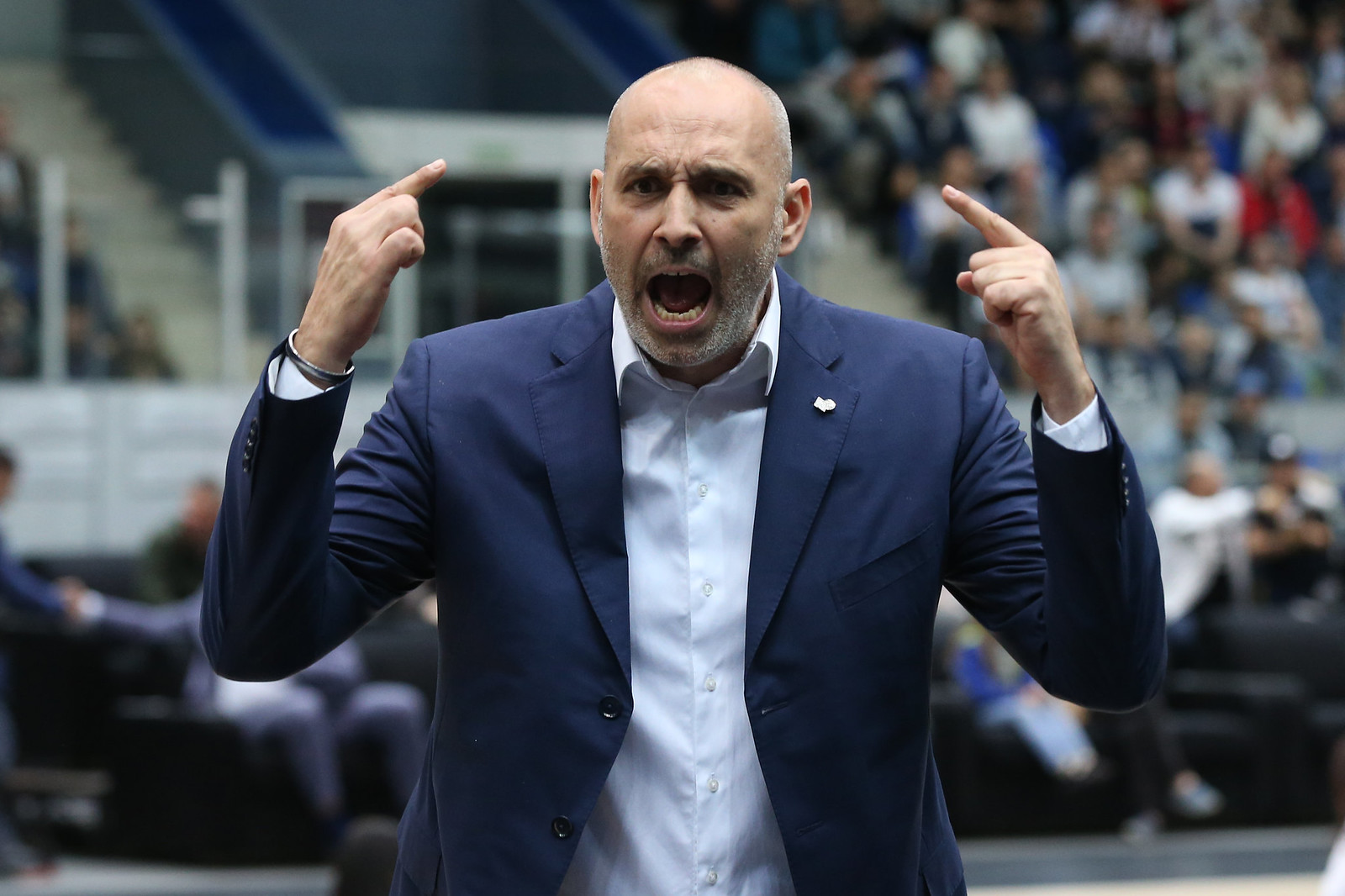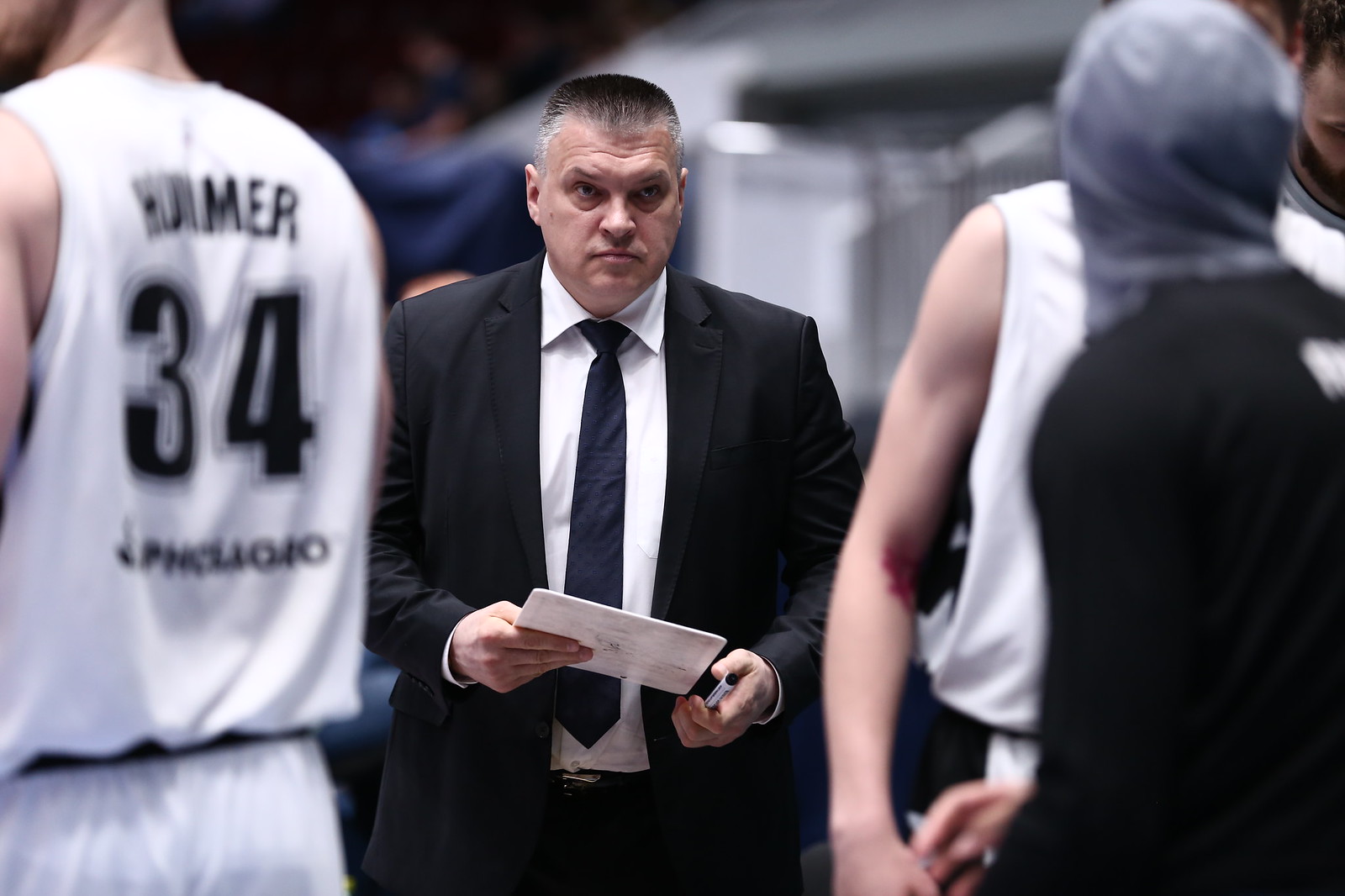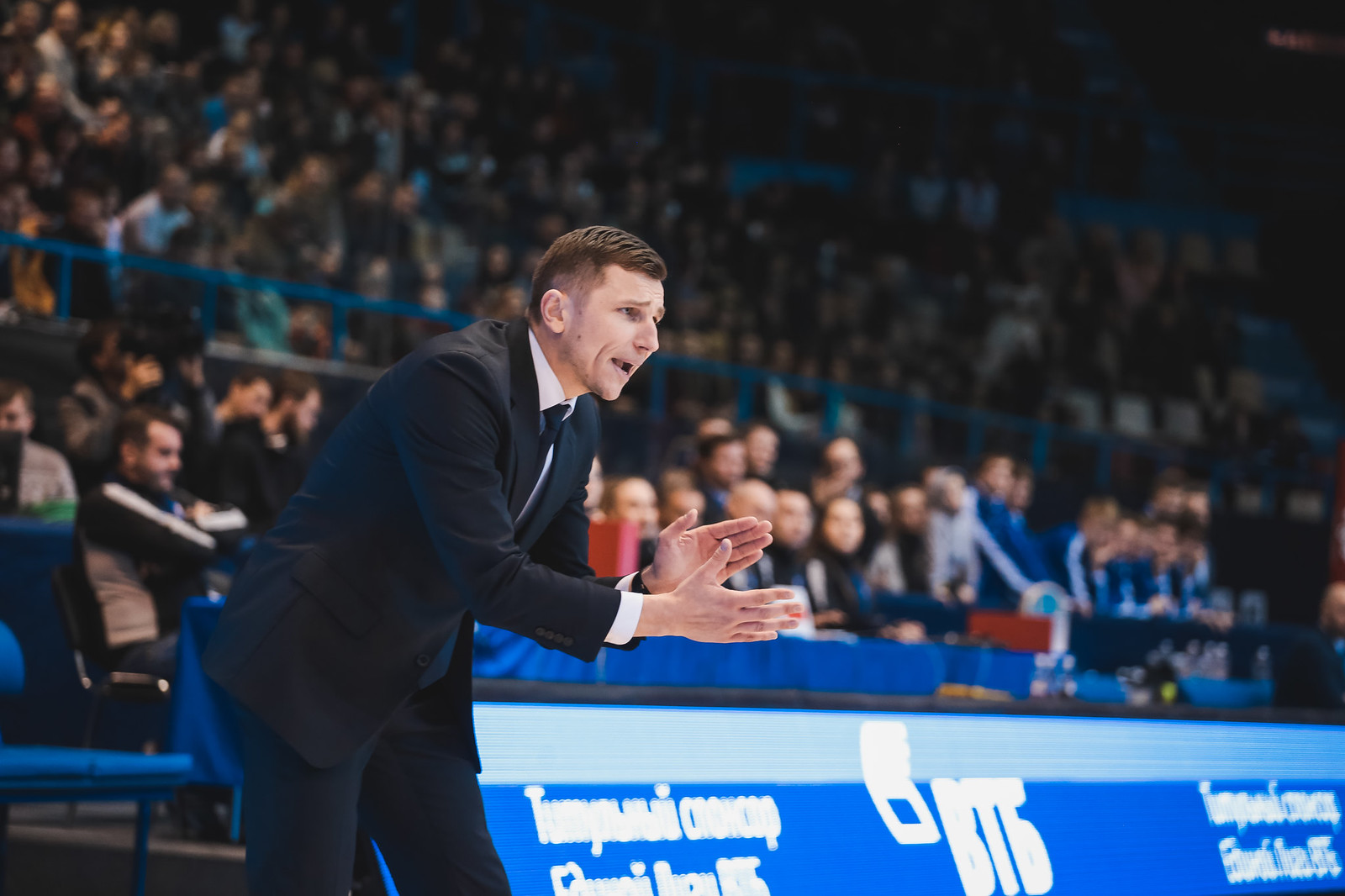As the season nears the finish line, journalists and analysts are eagerly reviewing results. The individual awards to be handed out–from the players on the court to the coaches on the sidelines–are one of the most popular topics of debate. Ranking the players, thanks to advanced statistics, is usually pretty straight-forward, but figuring out who did the best coaching job can provoke heated arguments.
Does the coach of the regular season champs deserve the title when he had the most talented roster at the start of the season? Does it make more sense to pick someone who gave the League’s top teams fits, coaxing the most out of an unheralded group of players despite missing the postseason? Or maybe the best option is someone who showed up midway through the season and completely turned his team around? The methodology is subjective and blurs both the criteria for evaluation as well as the priorities in determining them.
Nonetheless, I’d like to propose a system for the 2017-18 season that will help us judge the contenders somewhat more objectively. To begin with, we’ll determine the criteria that go into our scoring system.
First up: Length of time with the team. Those who have spent several seasons with the same group have it easier. Players already know what the coach wants and those who don’t fit the system don’t usually stick around for long. Plus, these coaches have more time to figure out the ideal schedule for practice and recovery to help overcome a grueling season, which can be very different from club to club.
Second: Budget. The bigger the budget, the lower the coach will rank on this criteria. You have to admit there’s much less risk involved when you are able to sign a proven competitor with European experience and a detailed scouting report rather than an untested American rookie.
Third: Cost/quality ratio. In other words, how did the team perform given its ambitions, expenses and the coach’s style of play? Obviously, it’s not easy to compare Astana and Khimki side-by-side. But if you evaluate a team over the course of a season using preseason goals, availability of talent and quality of play, it’s entirely plausible to see how a coach impacts the team’s progress or lack thereof. Plus, it’s one more entry point in our database.
On the basis of these premises, the Coach of the Year short list was developed in the following fashion.
Dimitris Priftis, UNICS
Priftis is without question the season’s biggest revelation. A measly two regular season losses nearly helped Kazan to the #1 seed in the Playoffs, though setbacks vs. CSKA tempered the praise for the Greek coach a bit. On the other hand, Priftis was going up against one of the best teams on the continent, while relying on a roster with plenty of rough edges.
He also had an unusual mix of players for the VTB League: athletic wings, hybrid lineups adapted both to score points quickly and shut down up-tempo offenses, and stars who were happy to share the limelight.
When more than half of your roster features ambitious, self-confident foreign players, creating that type of chemistry is not easy. It’s even trickier when you haven’t won any major titles and have spent most of your career as an assistant. But Dimitris Priftis managed to instill a system that is fun to watch and gets the job done.
Probably for the first time in many years, the team from Kazan can boast a creative, intelligent approach on both ends of the floor. UNICS, perhaps, could use a little more star power and roster depth to seriously challenge CSKA. But the talent, organization and discipline on display in the Basket Hall did not come together by accident–that much is certain.
Dimitris Itoudis, CSKA
Yet another Greek coach forced his way onto the shortlist with a regular season title already in his back pocket. When you have the League’s top offense to go with the second-best defense, CSKA is guaranteed a spot in every awards category, especially since the team’s only two losses came in back-to-back games in mid-winter. The Army Men made quick adjustments following the setbacks to Loko and Zenit and won 11 of their final 12 games by double digits.
Itoudis also innovated with new combinations on the court by introducing more Russians into the rotation. At times, he was able to experiment because of weaker competition; other times injuries forced his hand. But either way, Semyon Antonov joined Nikita Kurbanov as an irreplaceable member of the rotation, demonstrating an ability to cover both the four and five positions. Mikhail Kulagin also received extra playing time with Itoudis often throwing him into high-pressure situations.
Obviously, CSKA has more flexibility than the rest of the League when it comes to offseason moves. But Itoudis took a conservative approach in the summer, choosing targeted reinforcements over a complete overhaul of the roster. His strategy had a definite impact during the season. Sergio Rodriguez, one of the most explosive backcourt players in the League, helped author countless highlights, showcasing Moscow’s ability to thrive both in a classic lineup and with a more modern, smaller approach. Itoudis also deserves credit for helping Kyle Hines break out of his mold. Traditionally viewed as a defensive specialist, Hines responded to Itoudis’ request to make a bigger impact on offense and get more involved in set plays. His embrace of ball movement this season has helped spread out and further diversify the CSKA attack.
Without a doubt, fans and analysts will likely rank Itoudis beneath his rivals–the club’s unsuccessful performance in the EuroLeague Final Four is certain to leave a negative impression on the public. But if you ignore international competition and focus on VTB League results, Moscow enjoyed an exemplary campaign and forced the opposition to play its style of basketball.
Zoran Lukic, Nizhny Novgorod
Lukic has been around the block in Nizhny Novgorod, helping the club climb from anonymity in the Russian minor leagues to EuroLeague darlings in his first tenure. After leaving Nizhny Novgorod, Lukic continued to follow the club from a distance and both parties were excited about the chance for a fresh start after enjoying such success in the past.
The team struggled early on: competing on multiple fronts, getting worked to the bone on defense, and trying to find someone to key the offense while suffering several disappointing setbacks. But to Nizhny and Lukic’s credit, they never quit even though the temptation must have been high–take the devastating losses at home to fellow playoff hopefuls Tsmoki and PARMA. But their patience was eventually rewarded. Nizhny got plenty of payback in the second half of the season, and even scored wins over Zenit and Loko, while testing the League’s top two teams in UNICS and CSKA. The club’s feisty showing vs. Kazan in the quarterfinals was further proof of the toughness Lukic brought to the team this season.
It’s also important to remember who Lukic had to work with in Nizhny. For most of the season, only three foreign players were available, counting Belarusian big man Vladimir Veremeenko. The rest of the playing time went to unheralded Russians. Lukic deserves credit for staying true to his trademark philosophy of developing playoff-caliber teams with local talent.
Evgeny Pashutin, Avtodor
Pashutin has spent time at several clubs around the League: CSKA, UNICS and Loko. But this season in Saratov may have presented the toughest challenge of his coaching career. Not only did Pashutin come on board several months into the season, he also had to deal with an unbalanced roster. Pashutin’s predecessor was Andrea Mazzon, who believes in playing without centers and pushing the tempo as much as possible on both ends of the floor. Pashutin, meanwhile, is known for pick-and-rolls and suffocating defense. Something had to give, especially with Avtodor president Vladimir Rodionov demanding his team not only win, but do so with flair, not typically a trademark of a Pashutin-coached squad.
But Evgeny Yurevich showed his chops in crisis. Yes, familiar criticisms began to circulate in winter: He gave too much playing time to his foreign players, his rotation was too small, the offense too simple and over-reliant on stars in one-on-one situations, which could spell trouble in tight games. But Pashutin tuned out the skeptics since he could see his approach was working. Not only did the team’s results improve; the players also began to shine. By the end of the season, Coty Clarke was once again playing like a EuroLeague-caliber starter, drawing attention from newly-minted Adriatic League champs Buducnost. Brendan Frazier finally began to show why he was named Finals MVP in Ukraine. Justin Robinson finished second in assists in the League, while Maxim Sheleketo and Artem Klimenko made sure there was a Russian presence in the rotation.
At the same time, Pashutin showed an ability to innovate, embracing a score-first mentality (whether voluntarily or against his will is a question for another day) and enjoyed tremendous success. Saratov had the worst defense among the top 10 teams in the League, but consistently defeated fellow playoff hopefuls, on top of upsets vs. Lokomotiv, Zenit and even Khimki down the stretch. In other words, the Russian boss demonstrated he could rise to the challenge and knock off challenging season goals in style.
Avtodor ultimately finished in 5th place, a new club record. The magic, however, ran out in the postseason, as Zenit swept the series vs. Avtodor 3-0.
Nikolajs Mazurs, PARMA
He’s probably the most controversial coach on the list, but PARMA finished one win shy of the postseason, a major breakthrough for the Siberian club.
Compared to his rivals, Mazurs had the fewest resources and very little room to maneuver. Perm was also the only team without any turnover on its roster. The Latvian coach did the best with what he had, taking full responsibility for his summer signings. Given the club’s location and reputation, there was a lot of risk involved. After all, it’s not easy luring a superstar to Siberia while operating under a modest budget. Murky playoff hopes don’t make the job any easier. Nonetheless, the ex-VEF and Avtodor boss cobbled together an impressive lineup out on the Perm steppe and came within a single victory of taking a team that went 1-23 the previous season to the playoffs.
Mazurs deserves much of the credit–take Codi Miller-McIntyre’s transformation into one of the League’s most exciting guards. The League hasn’t seen a breakout season like that since Courtney Fortson at Avtodor. If he’d had a little help down the stretch, Miller-McIntyre might have even contended for MVP. Instead, PARMA lost four straight down the stretch, including several setbacks to other playoff hopefuls.
PARMA also showed a penchant for testing tough competition. So many games for PARMA featured dramatic finishes, including match-ups with Zenit, Khimki, Avtodor and Nizhny. Perm also won its share of nail-biters! Compared to some of the opposition who lacked the same intensity and drive, PARMA’s fearless approach was a joy to watch.
Finally, among teams outside of the Top 8, PARMA secured the most road wins. Despite antagonistic fans, fired-up opposition and slightly less benevolent officiating, Mazurs’ men were able to weather the storm and come out on top. Given the roster in Perm, four road wins is a respectable result, especially when judging a coach’s ability to both prepare his team for specific opponents as well as hostile environments.















